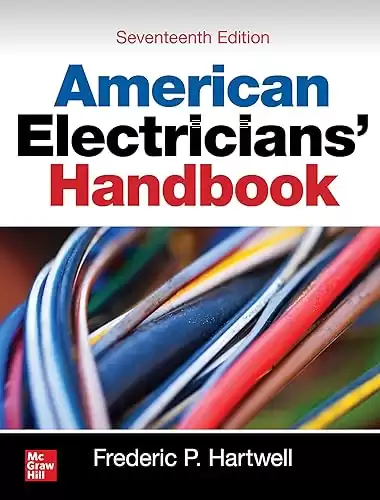You flip the switch, and the lights come on. Easy peasy right? For those of us who are not electricians, this is about the full extent of our electrical know-how. However, becoming a master electrician requires several years of experience and expertise. These aren’t your typical sparkies wiring up homes. Master electricians have reached the zenith of their trade. What makes them different? Stay with us as we unveil everything that is involved in this top-notch electrical certification.
Table of Contents
Toggle
What Is a Master Electrician?
The highest level of certification for electricians is a master electrician. They have worked for many years and taken an examination to affirm their knowledge and ability levels. In residential, commercial, or industrial settings, master electricians can design, install, and maintain complex electrical systems.
Years of Experience
To become a master electrician you must first work as a journeyman electrician for a certain number of years (typically 2-5yrs depending on where you live). This hands-on experience endows master electricians with vast practical knowledge that serves them well throughout their careers.
Advanced Knowledge and Skills
The expertise of the master electricians in the National Electric Code, and all the safety standards involved as well as best practices is unparalleled. They are extremely competent at reading blueprints or drawings and installing wiring systems as well as equipment. A master electrician can fix various motor problems, keep generators running, and repair transformers, control systems, and renewable energy setups like solar panels. They also remain abreast with the latest technologies so that their clients receive safe, cost-effective, and innovative remedies to their requirements.
Greater Responsibilities and Opportunities
Master electricians can be self-employed electrical contractors, and start a business from scratch while others may climb up to project manager or director of operations positions. Master electricians earn more money than those without because they have better skills, experience, and relevant certification documents. Such individuals perform complex projects hence there is a need for them to advance in this position thereby ensuring growth both in terms of career path and financial terms over time.
How to Become a Master Electrician
You will need to work very hard if you want to get to the top of the electrical field and become a master electrician. The first thing you should do is get exposure for about two to five years working under a licensed journeyman electrician. This time will help you bank useful knowledge about how wires are installed practically on-site, what circuits are prone to faults during use among other things.
Education and Licensing
Beyond experience, you’ll need to meet your state’s educational requirements, usually a technical degree or training in electrical work. You’ll also need to pass an exam to become licensed. The licensing process varies in each state, but will typically involve passing an exam on the National Electrical Code, local codes, and electrical theory.
Continue Your Education
Even after becoming licensed, you’ll need to stay up-to-date with the latest technologies, codes, and safety standards. Most states require master electricians to complete continuing education courses to maintain their license. It’s a good idea to take additional courses on your own to strengthen your skills.
Build Your Reputation
A master electrician is seen as an expert in the field, so you’ll need to establish a reputation for high-quality, knowledgeable work. Focus on refining your craft, keep good relationships with clients, and ask satisfied customers to provide references and reviews. Joining professional organizations is also a great way to network and raise your profile.
Optional Certification
Some master electricians pursue optional certification to demonstrate their abilities. The National Fire Protection Association offers the Certified Electrical Safety Worker certification. The International Association of Electrical Inspectors offers the Certified Master Inspector and Master Code Professional credentials. Such certifications are not required but can strengthen your reputation and open up career opportunities.
The "American Electricians' Handbook, Seventeenth Edition" is a practical, on-the-job resource packed with essential information on current energy-efficient technologies, safety methods, and industry standards. With detailed explanations, diagrams, and calculations, it's an indispensable tool for electricians at all skill levels.
Responsibilities and Skills of a Master Electrician
Master electricians have many responsibilities that require years of training and experience. Their primary role is designing, installing, and maintaining electrical systems in residential, commercial, and industrial buildings.
Designing Electrical Systems
The design of new electrical systems by the best electricians is based on reading blueprints and specifications. They arrange circuits, wiring, and equipment such as transformers, circuit breakers, and lighting fixtures. These designs must meet all building codes and safety standards. The skills required to create a system are technical competence coupled with creativity in tackling challenges.
Supervising Installations
Master electricians are responsible for overseeing the installation teams to ensure the proper setup of the new electrical system. They guide apprentices and journeymen who will be given tasks to work on. Their supervisions provide quality control while managing some possible costly mistakes or even potentially dangerous ones that may arise hereafter from such actions. Leading teams and projects also call for leadership qualities, communication abilities together with organization skills.
Troubleshooting and Repairs
Master electricians have malfunctions that they need to rectify so that the systems can continue operating safely and efficiently. This requires logical thinking, technical knowledge, & years of being practical troubleshooting experts. Repairs could be minor or involve rewiring complete sections of buildings. To perform repairs accordingly, master electricians should keep up with safety codes as well as new technologies.
Maintaining Compliance
Master electricians make sure all electrical work is done legally and safely. They keep records, obtain proper permits, and schedule inspections to meet compliance standards. Staying up-to-date with building codes, licensing requirements, and regulations is an ongoing responsibility that demands attention to detail and a commitment to safety. Compliance helps minimize risks and ensures quality.
Master the fundamentals of electrical systems with 'Delmar's Standard Textbook of Electricity.' Ideal for journeyman electricians, this concise guide covers essential principles for installing, repairing, and troubleshooting electrical components.
Master Electrician vs Journeyman vs Apprentice: What’s the Difference?
As an electrician, there are a few career paths you can take. The main options are apprentice, journeyman, and master electrician. Each role comes with different responsibilities and pay. Let’s break down the key differences between these positions so you can determine the best path for your career.
Apprentice Electrician
An apprentice electrician is still in training. They work under the supervision of a licensed electrician to gain the necessary experience and hours required for licensing. Apprentices earn a percentage of a journeyman’s pay which increases as they progress through the program. After completing a certain number of hours of on-the-job training and technical education, apprentices can become journeyman electricians.
Journeyman Electrician
A journeyman electrician holds a state license to work independently. They have completed their apprenticeship training and passed an exam to demonstrate their knowledge and skills. Journeyman electricians earn significantly more than apprentices and can take on more responsibility. However, they still work under the supervision of a master electrician. Journeymen continue learning through ongoing coursework and certifications to improve their skills.
Master Electrician
A master electrician is the highest level of an electrician. They have extensive experience, typically over 10 years, and have passed an exam to become certified. Master electricians can design electrical systems, train apprentices and journeymen, and work independently without supervision. They earn the highest pay of all electricians. To become a master electrician, you usually need a certain number of years of experience as a licensed journeyman. You must also pass an exam to demonstrate your advanced electrical knowledge and skills.
Master the journeyman electrician licensing exam with 'Journeyman Electrician Exam Secrets Study Guide.' This comprehensive resource covers essential topics such as electrical theory, safety standards, and the National Electrical Code, providing invaluable preparation for aspiring electricians seeking licensure. Get ready to ace your exam and embark on a successful career in electrical work.
Why Choose a Master Electrician?
So there you have it. Master electricians are the cream of the crop when it comes to working with electricity and electrical systems. Their advanced training, experience, and certification set them apart from other electricians and allow them to take on more complex and supervisory roles. When you need electrical work done, especially for large projects, commercial settings, or situations where safety and compliance are critical, a master electrician is the way to go. They have the skills and qualifications to get the job done right.
Frequently Asked Questions
What Is a Master Electrician?
A master electrician is the highest level of certification for electricians, requiring extensive experience and advanced knowledge. They design, install, and maintain complex electrical systems in residential, commercial, and industrial settings. Learn more about trades with our guide on How to Become a Plumber: Plumber Career Path.
What Are the Responsibilities of a Master Electrician?
Master electricians are responsible for designing electrical systems, supervising installations, troubleshooting and repairing electrical issues, and ensuring compliance with safety standards and codes. For insights on DIY projects, see our Home Painting: How to Paint a Home.
How Do You Become a Master Electrician?
To become a master electrician, you need several years of experience as a journeyman, followed by passing a certification exam. The process also involves ongoing education to stay current with technology and safety standards. Explore more career paths in our article on How to Become a Mailman.
How Does a Master Electrician Differ from a Journeyman Electrician?
A master electrician has more experience and can design and oversee complex electrical projects, whereas a journeyman electrician works under the supervision of a master and cannot design systems independently. Discover more about different trade roles in our comparison of BIM vs CAD: Understanding the Difference.
What Career Opportunities Are Available for Master Electricians?
Master electricians can become self-employed contractors, project managers, or directors of operations, earning higher wages due to their advanced skills and experience. For more on job prospects in various fields, read about Careers in Renewable Energy: The Best New Jobs.











